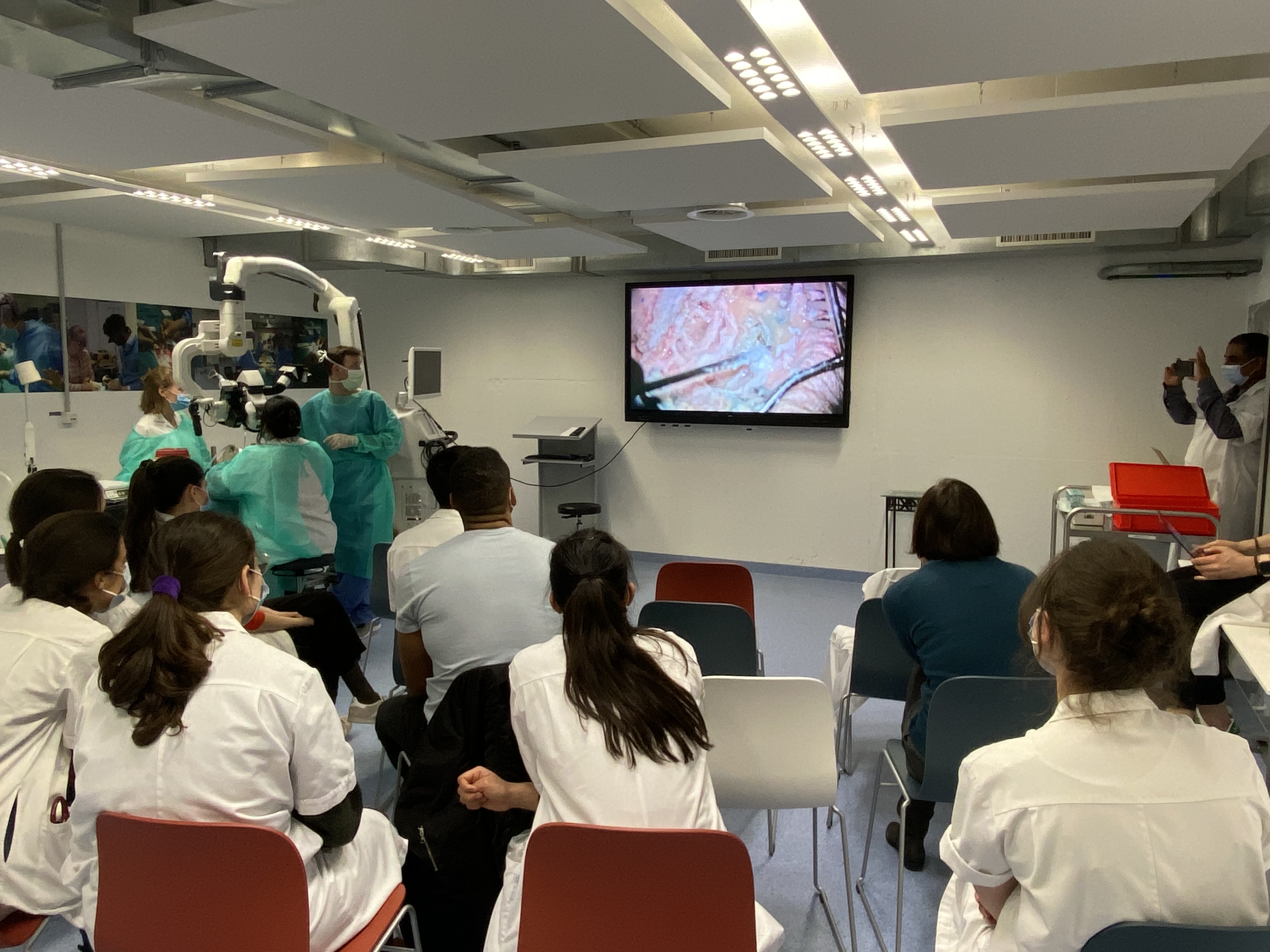- Home
- Research
- Neuroscience Research Centre
- Other laboratories
- Laboratory of clinical neurosurgery research
Laboratory of clinical neurosurgery research

The laboratory research is based on cohort studies (institutional or multicentric) with a view to improve neurological outcomes following surgery. This led to publication of several european guidelines on behalf of the European Association of Neurosurgical Societies for treatment of complex skull base pathologies.
The Neurosurgery Education and Training laboratory (NET-lab) activities explore new surgical approaches in order to limit neurological morbidity. We also pioneered the strategy of combined surgery with radiosurgery and implemented combined endoscopic and open surgical approaches for complex skull base pathologies. The lab contributes data to the Swiss SOS registry on aneurysmal subarachnoid hemorrhage allowing several multicentric cohort studies on epidemiology and treatment outcomes. The clinical and NET lab research studies is also focused on new surgical strategies for disconnective epilepsy surgery. Surgical strategies for pituitary tumors that favor endocrine functional preservation are explored through combination of large cohort studies, newer surgical approaches and molecular markers analysis. New paradigms for the treatment of severe brain trauma have also been developed with promising outcomes that have challenged traditional concepts of treatment care.
Research areas
The primary focus of this team centers on the tumors and vascular lesions of the brain. The lab focuses on innovative surgical strategies that combine surgical (endoscopic and open) and radiosurgical treatment. We also focus on comparing outcomes of surgical and interventional neuroradiological procedures for the aneurysm treatment especially in relation to DCI and its treatment.



